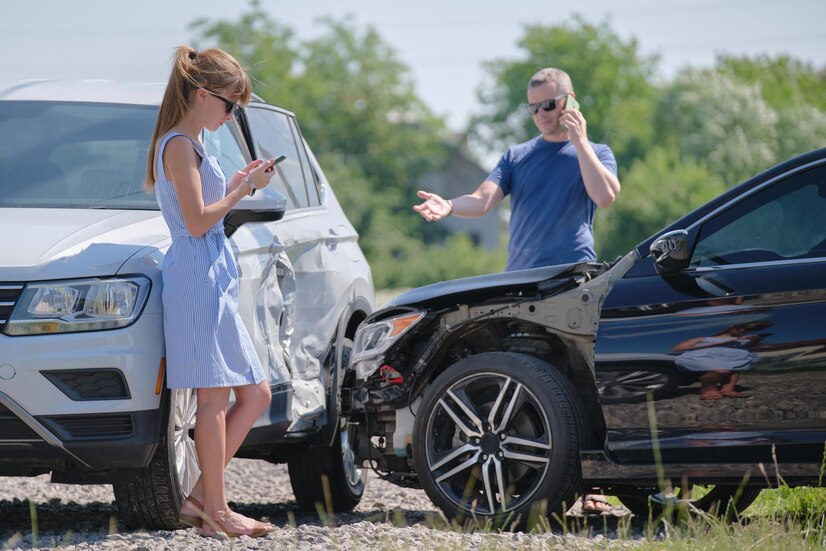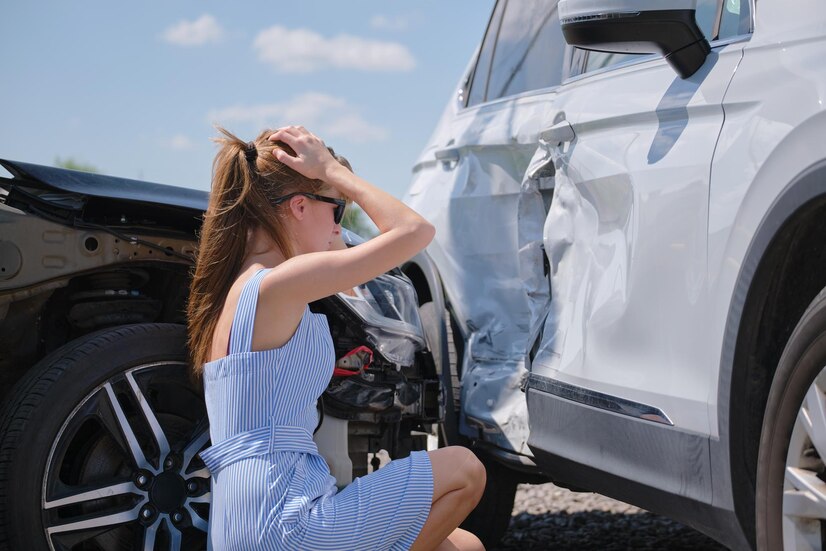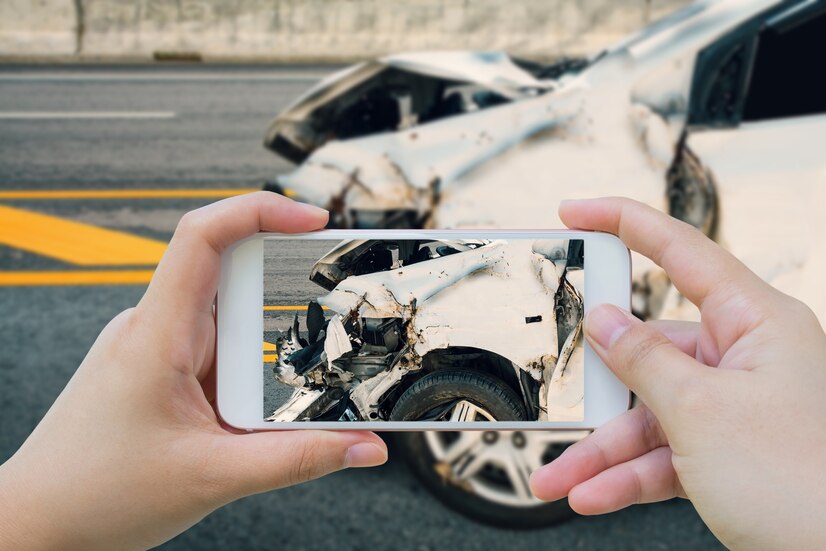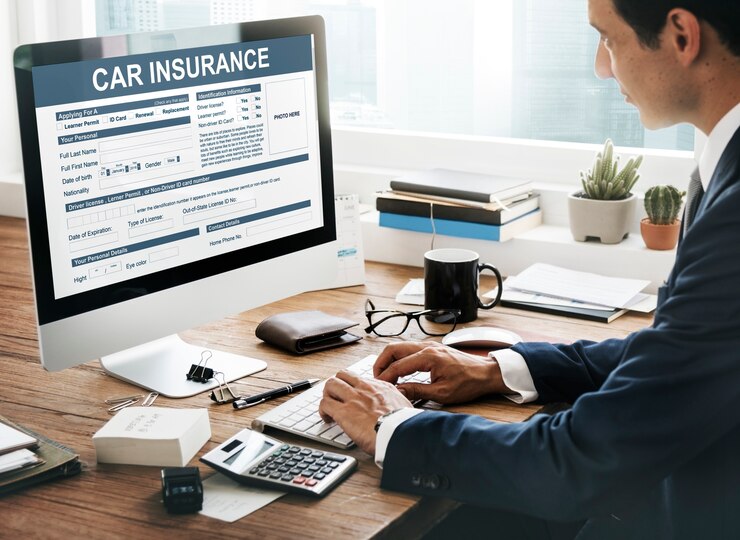
Understanding the financial implications of a car accident is crucial, especially when it comes to your insurance premiums. It’s a common concern for many drivers: How much will my car insurance go up after an accident? The answer isn’t always straightforward, as several factors come into play. This article will delve into the complexities of insurance rate increases post-accident, helping you navigate this often confusing aspect of car ownership.
The Impact Of An Accident On Car Insurance Rates

When you’re involved in a car accident, your insurance company reassesses your risk level. Generally, if you’re deemed at fault, you can expect an increase in your premiums. The severity of the accident, whether it resulted in bodily injuries and the cost of claims filed are all considered. For instance, a fender bender might result in a smaller rate hike compared to a multi-car pile-up.
At-fault vs. no-fault accidents play a significant role in determining rate increases. If you’re not at fault, your rates may not increase at all, especially if your insurer can recoup costs from the other party’s insurance. However, some policies do raise premiums for no-fault accidents, depending on the insurer’s policies and the specifics of the incident.
The difference between minor and major accidents is also critical. Insurers may forgive a first minor accident, particularly if you have a history of safe driving. However, a major accident, especially one involving injuries, is likely to result in a more significant premium increase.
Some insurers offer accident forgiveness as an optional feature or a reward for long-term customers with good driving records. This can prevent your rates from going up after your first at-fault accident. It’s worth checking if this is available to you, as it could save you money in the long run.
Average Increase In Car Insurance Rates After An Accident
The average increase in car insurance rates after an accident can vary widely. According to a study by the Insurance Information Institute, drivers who make a single auto claim of $2,000 or more can expect their premiums to increase by an average of 41%. The type of claim — whether it’s for property damage, bodily injury, or a comprehensive claim — also affects the rate hike.
Comparing rate increases for different types of accidents is important. For example, a DUI-related accident is likely to result in a higher increase than an accident caused by a momentary lapse in attention. Additionally, the increase can vary by state due to differing insurance regulations and by insurance providers based on their claims experience and pricing models.
Duration Of Increased Rates Post-Accident

An accident can stay on your insurance record for three to five years, depending on your state’s laws and your insurer’s policies. During this time, your rates may be higher, but they typically decrease gradually as you move further away from the date of the accident, provided you maintain a clean driving record.
How To Minimize The Impact On Your Insurance Premium
After an accident, there are several steps you can take to minimize the impact on your insurance premium. Firstly, negotiating with your insurance company may be an option, especially if you have a history of safe driving. Demonstrating your commitment to safety by taking a defensive driving course can also help. These courses are sometimes recognized by insurers and can lead to discounts on your premiums.
Shopping around for new quotes is another effective strategy. Different insurers weigh factors differently, so you may find a better rate with another company. Additionally, maintaining a clean driving record is paramount. Over time, the effects of a single accident will diminish, and your rates can return to a lower level.
Factors That Influence Post-Accident Premiums

Several factors can influence how much your insurance premium increases after an accident. The driver’s age and experience are significant; younger, less experienced drivers often face steeper rate hikes. Your previous insurance claims and driving history also matter — a clean record may lead to a smaller increase.
The type of vehicle involved can affect the outcome as well. High-performance or luxury vehicles may result in higher post-accident premiums due to the higher cost of repairs. Lastly, location plays a role. Some states have higher average insurance rates, and post-accident increases can be more pronounced.
Steps To Take Immediately After An Accident
If you’re involved in an accident, it’s crucial to document the accident scene thoroughly. Take photos, exchange information with the other driver, and gather witness statements if possible. Reporting the accident to your insurance company promptly is also essential.
Understanding the claims process can help you anticipate potential impacts on your premium. Your insurer will explain the steps involved and how the claim may affect your rates.
Understanding Your Policy: What To Look For Before And After An Accident
Before an accident occurs, it’s important to understand your coverage options. Liability coverage, collision coverage, and comprehensive coverage all play different roles in how your rates are calculated post-accident. Your deductible — the amount you pay out of pocket before your insurance kicks in — can also influence your premium cost after a claim.
Reviewing and understanding your policy’s terms can prepare you for any rate increases. It’s always better to be informed about your coverage before you need to file a claim.
For those seeking legal guidance after an accident, a Bastrop personal injury attorney can provide valuable assistance in navigating insurance claims and potential disputes.
The Role Of Accident Claims In Future Insurance Considerations

When you file a claim for an accident, it can influence not only your current insurance rates but also your future insurability. Future insurers often look at your claims history when determining premiums or deciding whether to offer coverage. Multiple accidents, especially within a short time frame, can lead to higher premiums or even policy denial.
However, all is not lost if you have a history of accidents. There are strategies for finding insurance with a less-than-perfect driving record. Some insurers specialize in covering high-risk drivers, although at a higher cost. It’s also possible to improve your driving habits and record over time, which can help you secure better rates in the future.
FAQs:
In this section, we’ll address some of the most common questions drivers have about how accidents affect car insurance rates.
Will my insurance go up even if the accident was not my fault? It depends on your insurer and the specific circumstances of the accident. Some insurers do not raise rates for not-at-fault accidents, while others might, especially if you have a history of claims.
Can I switch insurance providers after an accident to get a better rate? Yes, you can switch providers at any time. However, the accident will still be on your record, so it’s essential to shop around and compare quotes to find the best rate. Take the time to compare car insurance quotes from multiple providers, as each company evaluates risk factors differently and you may discover a more affordable premium elsewhere.
How does a hit-and-run accident affect my insurance premium? If you’re the victim of a hit-and-run, your rates may not increase if you have the appropriate coverage and your insurer can confirm you were not at fault. However, if you’re the perpetrator, it can lead to significant legal issues and a substantial increase in your insurance premiums, assuming you’re identified and your insurer is notified.
What is a surcharge schedule, and how does it relate to my rates post-accident? A surcharge schedule is a chart used by insurance companies to determine how much to increase your rates after a claim. The surcharge is based on the severity of the accident and your overall claims history.
Conclusion
Navigating the waters of car insurance after an accident can be challenging, but being informed is your best defense. Understanding how accidents affect your premiums, what factors influence the rate increase, and how long you can expect to pay more can help you manage the financial impact. Remember, safe driving habits not only protect you and others on the road but can also keep your insurance costs in check.
In the unfortunate event of an accident, it’s essential to handle the immediate aftermath responsibly and to review your insurance policy regularly. This ensures that you have the coverage you need and that you’re prepared for any changes to your premiums.
Call To Action
If you’ve recently been in an accident and are concerned about how it will affect your insurance rates, or if you need help finding coverage with a less-than-perfect driving record, don’t hesitate to seek professional advice. An experienced advisor can help you understand your options and guide you toward the best possible outcome for your situation.
Read Also:
- How To Adopt A Child In 5 Easy Steps
- How To Design The Best Law Firm Website In 7 Easy Steps
- 10 Reasons Why Businesses Should Hire Corporate Lawyers










1 Reply
What Are The Essential Types Of Auto Insurance Coverage?
March 27, 2024 at 12:59 pm
[…] How Much Does Car Insurance Go Up After An Accident? […]
Reply